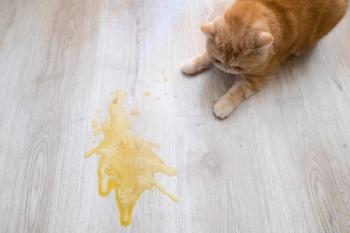
S.C. ponders semi-public discipline hearings
Columbia, S.C.—Revisions to South Carolina's practice act would allow plaintiffs to attend disciplinary hearings. A public push for open-hearings led to the compromise that could update the law for the first time in 30 years.
COLUMBIA, S.C.—Revisions to South Carolina's practice act would allow plaintiffs to attend disciplinary hearings. A public push for open-hearings led to the compromise that could update the law for the first time in 30 years.
HB3615 and SB499, initiated by the South Carolina Board of Medical Examiners and supported by the South Carolina Association of Veterinarians (SCAV), eliminated previous proposed text that would allow all veterinary disciplinary hearings to be made public.
In the new version, only those who file a formal complaint deemed worthy of a hearing will be permitted to attend the hearing.
This is only a piece of the vast practice act, but is getting the most recognition due to its controversy.
Text declaring the practice of veterinary medicine to involve public health, safety and welfare was eliminated from the amendments along with citations saying the public is to be protected against incompetent practitioners.
For the first-time, the new bills would allow those who file formal complaints with the board to attend the hearing, making, making the way complaints are governed a more predominate feature than making hearings more public.
The individual who filed a complaint, could not participate in the hearing and could not discuss the case with anyone, essentially installing a gag order on any person who makes a formal complaint.
Critics contend the rule doesn't go far enough, and it treads on the first amendment. It also nulls the legislative declaration of purpose that designates DVMs as public servants.
"It would be more difficult for a person to be allowed to attend, and not speak than it would be to not go at all," says Marcia Rosenberg, a private citizen and independent lobbyist driving the initial legislation. "The board and SCAV is so anxious to get a new act that they just compromised on the most important part of last year's legislation."
The board has been working on the updates to the state's practice act for about six years.
"Almost 30 years without updating the practice act is a long time," says Dr. Valerie Alexander, immediate past chair of the board. "A lot of people came together, and they all had different ideas of what the bill should look like. It was not easy getting to the point we are at now."
Ins and outs
Rosenberg says the new bill does not protect the public. She urges politicians to revert to the language in last year's proposed legislation, which opened all documents filed in a proceeding at the time an answer to the formal complaint is filed. This concept was agreed upon last session by the veterinary board and SCAV.
"This bill is not perfect, but it's the best we can come up with," says Rep. Tom Dantzler, DVM. "The bill addresses many veterinary issues, and I don't think anyone will ever be 100-percent happy with the outcome."
The bill:
- includes a definition for the investigative review committee,
- revises procedures on conducting hearings,
- provides for licensure by endorsement,
- authorizes student preceptor programs,
- provides procedures for veterinarians in the case of animal abandonment in their clinic,
- allows a lien on an animal when payment for care is not made
- establishes standards for emergency veterinary care facilities.
"The best part of the bill is that it invites the person making the complaint into the hearing so they can see that their issue is being addressed adequately," Alexander says.
State Sen. Larry Grooms, R-Berkeley, introduced two new amendments to the Senate bill that would add public disclosure and an additional consumer member to the veterinary board.
"There are so many good points to this legislation and as always, it's a matter of compromise in these situations," says H. Kelley Jones, SCAV executive director. "The bill is largely the same as what we proposed last year. The differences are that disciplinary action fines will be increased from $500 to $1,000 instead of $2,000 and the section that is getting all of the attention that doesn't make the hearing public to everyone."
Sen. Dan Verdin, R-Laurens, the culprit for stalling the bill last year via filibuster, says although the bill continues to change, he largely supports it.
"I did not think it was fair to veterinarians to have every complaint made public before the board made a (final) decision," Verdin says. "It's not helping the public either giving them incomplete information."
Only complaints the board agrees to hear after research by the Investigative Review Committee would be made public.
"All frivolous and trivial complaints not warranting a hearing would not be made public—eliminating concern for good veterinarians being wrongfully villainized," Rosenberg says. Jones says the bill has a good chance of passing this year, and the board and SCAV is content with the legislation if it was made into law in its current form.
Newsletter
From exam room tips to practice management insights, get trusted veterinary news delivered straight to your inbox—subscribe to dvm360.




